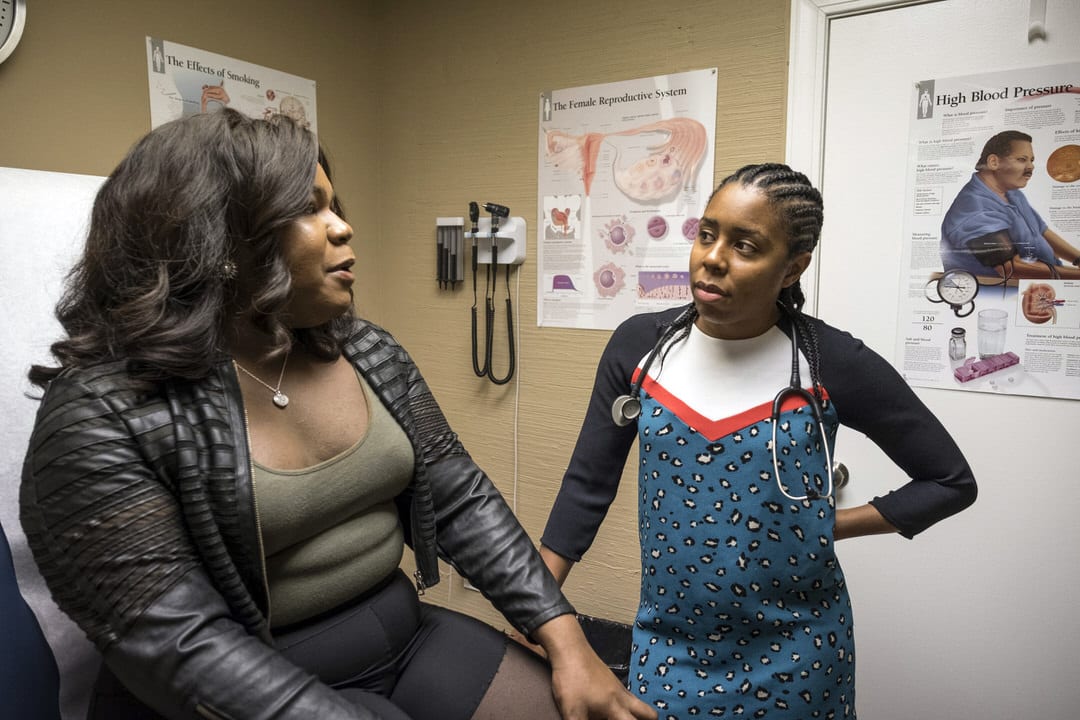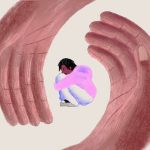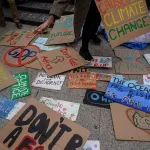Advocates say a new report from the Centers for Disease Control and Prevention signals that the agency will resume critical work on LGBTQ+ health, something they say is direly needed during the pandemic.
The CDC released a report last week detailing the many health disparities that make lesbian, gay and bisexual Americans particularly vulnerable to complications from coronavirus. Information on transgender people was not included, because the survey turned up too small a sample size of respondents, the CDC noted. Intersex people are also not represented in the dataset.
The report’s stated goal is to guide future data collection and create a roadmap for tackling health disparities. But the data itself is not new: Under the Obama administration, the CDC had been documenting the health challenges facing LGBTQ+ people. The Trump administration, however, hit the brakes on LGBTQ+ data collection.
So though the existing data allows researchers to extrapolate, there is no updated study to show how these vulnerabilities have impacted LGBTQ+ people during the pandemic. A lack of federal data can have devastating consequences, advocates said.
“We have to ask these gender identity questions, and we can ask simple questions about sexual identity that lets us know who we’re reaching and who are not,” said Jessica Halem, former LGBTQ outreach and engagement director at Harvard Medical School.
LGBTQ+ organizations have been sounding the alarm for a year about the ways in which queer Americans are being hard-hit by the virus, but until now, federal reports have given little weight to those fears.
“This report affirms what LGBTQ advocates and organizations have known all along: that our community is at greater risk and disproportionately affected by the COVID-19 health crisis,” Alphonso David, president of the Human Rights Campaign, said in a statement to the media. “It is critical that health disparities in marginalized communities are fully captured by government data collection so they can be swiftly addressed.”
David also criticized former President Donald Trump for failing to address the outsized impact that the pandemic has had on LGBTQ+ people.
An estimated 65 percent of queer Americans have preexisting health conditions like cancer, asthma, heart disease, kidney disease, HIV and diabetes. Those challenges often stem from the stress of discrimination, joblessness, lack of competent medical care and inadequate access to food.
The Center for American Progress, a progressive policy think tank, crunched federal data from the 2019 Behavioral Risk Factor Surveillance System and found that 49 percent of LGBTQ+ adults smoke, compared with just 39 percent of their peers. They also reported that 20 percent of LGBTQ+ people have asthma, compared with 14 percent of the population.
According to the Human Rights Campaign, LGBTQ+ people are not just contending with health challenges. They are overrepresented in service jobs where they face exposure to COVID-19. More than 40 percent of LGBTQ+ people work in essential jobs in restaurants, hospitals, educations and retail, compared with 22 percent of their straight cisgender peers, according to HRC.
Queer people are also less likely to get medical treatment because they don’t have insurance or might face discrimination from doctor’s offices. Ten percent of LGBTQ+ people are unemployed, according to the Williams Institute at the UCLA School of Law.
It’s a humanitarian crisis that queer and trans people are denied basic information about our bodies.
Jessica Halem
Over the past year, LGBTQ+ organizations have done research when the federal government has not, giving them insight into the challenges they might face in getting LGBTQ+ people vaccinated.
On Monday, Colorado-based LGBTQ+ advocacy organization Out Boulder County reported that it had found that LGBTQ+ people were nearly twice as likely to be hesitant about getting a vaccine as the general population; 17 percent of queer respondents were reluctant to get vaccinated compared with just 9 percent of their straight cisgender peers.
Halem said that health disparities and distrust all come from one place: discrimination queer people have faced in health care.
“We are not in a positive relationship with health care providers or the health care system because of documented discrimination and outright refusal of care by health care systems,” Halem said. “Without a good relationship with a doctor or a health care system, I’m actually being denied life-saving information, drugs, care, the kind of partnership that people need with health care professionals to live a healthy life. It’s a humanitarian crisis that queer and trans people are denied basic information about our bodies.”
The CDC report comes as President Joe Biden makes the case for his $1.9 trillion COVID-19 relief plan. LGBTQ+ advocates want the president to target part of that money to address what they say has been an invisible crisis decimating queer communities.
“An equity-centered, comprehensive strategy to address the destructive effects of the pandemic on our public health and health care infrastructure will require ensuring that the needs of LGBTQ communities are integrated throughout the response of all levels of government,” Caroline Medina, a policy analyst for the LGBTQ research and communications project at the Center for American Progress, said in a statement.
LGBTQ+ media advocacy organization GLAAD argued the report drives home the need for the full relief package promised by Biden but controversial among Republicans.
“LGBTQ Americans also face higher rates of job loss and poorer access to health care,” said GLAAD President Sarah Kate Ellis in a statement. “Congress must put all it can into a plan that maximizes relief for our community and all those most at risk.”






